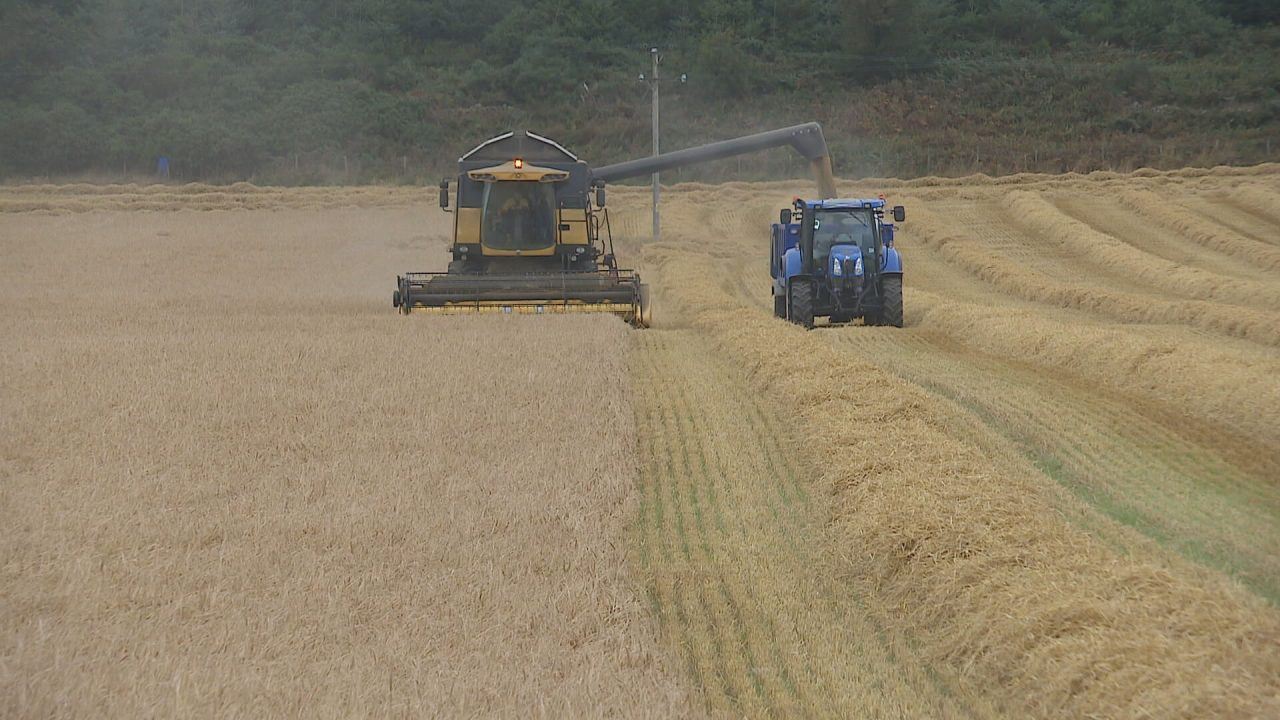It’s been a harvest of extreme weather.
Crops were planted in spring during some of the driest conditions the North East has seen for 70 years, and just before they were harvested Storm Floris battered them with 70 mile per hour winds and heavy rain.
The results aren’t good for the malting barley, a key ingredient for Scotch whisky and an important cash source for farmers.
Scott Campbell, who farms near Kintore, told STV News: “Overall the grains are much smaller this year than they should be because of the dry start the plants had in spring, and any bigger grains, which are the profitable ones, were blown off during Storm Floris.
“I’ve not seen such poor-quality grain for years; we can’t sell this.”
This year’s grain is too small to be accepted by maltsters, who sell the product to distillers, leaving farmers with tonnes of product they can’t sell even for animal feed.
Furthermore, despite bumper years for Scotch whisky exports and production during 2021 and 2022, the industry is now feeling the pressure as demand for the drink has slowed.
The Scotch Whisky Association says a “turbulent global trading environment, including tariffs in the United States and high levels of tax and regulation in the UK” is to blame.
Scott says many farmers will be re-thinking their plans to grow malting barley in the future.
He explained: ”Short-term, there will be malting barley. But longer-term, once farmers see they can grow other things instead and get a better return, there will be a hit for the whisky industry as Scottish barley won’t be there.”
It’s hoped the new free trade deal with India will boost whisky exports further and increase demand, but for now the issue of price has been thrown into sharp focus given this year’s poor yields.
Andrew Connon, president of the National Farmers Union for Scotland, said: “We need to get a sustainable price going forward.
“That means a price that allows farmers to have confidence to grow it. It’s a premium product in Scotch whisky but we need a premium product for our grain.”
Those buying barley say the grains produced this year don’t even nearly match the quality they require to sell on to distillers.
Owen Southwood, a member of the Malting Association of Great Britain, said: “The quality is really out this year, which makes it difficult to judge where the prices are going to go with it.
“Inevitably farmers will question the viability of growing spring barley for malting, however, the market will move to reflect that to encourage them to grow malting barley.”
For many, the harvest is now finished.
But fresh worries about what next year’s weather will bring is only a season away.
Follow STV News on WhatsApp
Scan the QR code on your mobile device for all the latest news from around the country





























